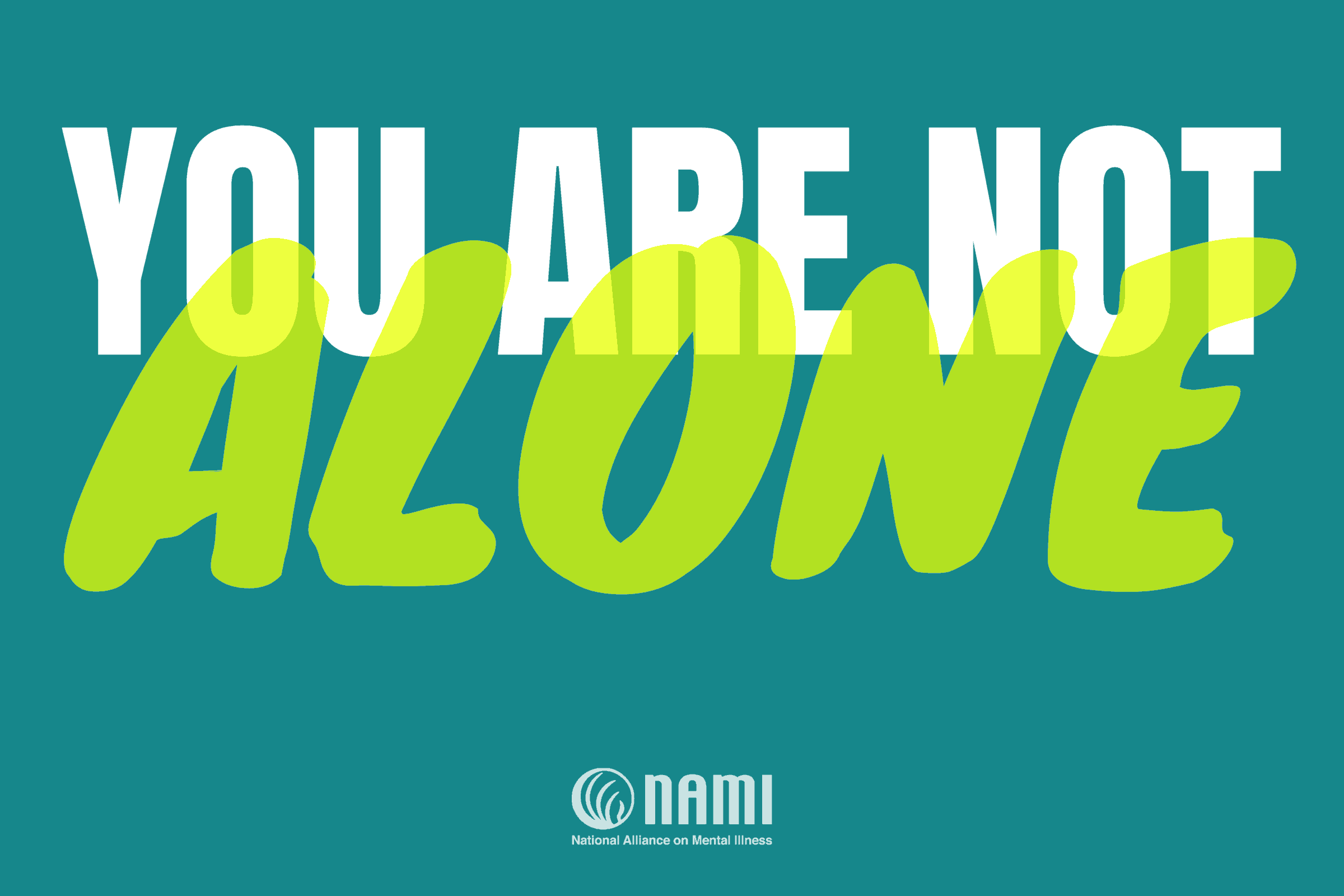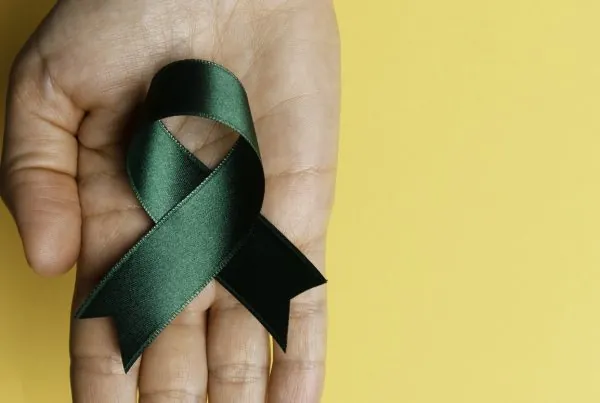This May, the National Alliance on Mental Illness emphasizes an important message for Mental Health Awareness Month 2021: You Are Not Alone.
As of 2019, one in five American adults experienced mental disorders, and one in 20 American adults struggled with a serious mental health episode. Half of all lifetime mental disorders begin at age 14, highlighting the importance of supporting our teens as well. In addition, researchers believe that the long-term mental health effects of the pandemic are just beginning to unfold, meaning we may be on the horizon of a serious upward curve in our mental health crisis.
2020 had us all struggle with the isolation and sorrow wrought by a devastating pandemic. Besides the direct impact of COVID-19, many Americans continue to struggle with the measures used to combat the pandemic, from mandated lockdowns to strained healthcare resources. In 2020, NAMI launched the Tools 2 Thrive campaign, emphasizing the importance of safeguarding one’s mental health during the pandemic and building the toolkit to attend to one’s own mental needs.
2021 is about pulling together to reiterate the importance and power of community and family in treating and managing mental health issues and remind one another that we are not alone.
What Is Mental Health Awareness Month?
Mental Health Awareness Month, or the Mental Health Month, has been observed in the United States every May for the last 50 years. It has always been a time for mental health institutions in the country (and other parts of the world) to remind readers to care for one another, spread awareness of the ongoing struggles of people with mental health issues (particularly marginalized communities and minorities), and share resources that are effective in combatting mental health issues at home and throughout the community.
Mental Health Awareness Month 2021 takes place all month and will be honored through encouraged community-wide posts, shared personal stories and experiences, video and photo content, regular blog content from NAMI’s blog, and featured resources, featured warmlines, and featured organizations that help address ongoing mental health crises throughout the country.
NAMI’s Message: You Are Not Alone
After a year highlighted by isolation, NAMI’s message is specifically meant to guide people to the help they need by highlighting available support organizations and resources, driving home the importance of providing support to loved ones and fellow community members, and raising awareness on just how common certain mental health issues have become, including depression, anxiety, and a dual diagnosis of a mental disorder and substance use disorder.
Showing Your Support This Year
If you are interested in impacting mental health this year, consider getting involved directly through a donation of your time or money. Organizations that advocate for those struggling with mental health disorders include:
As well as state-specific mental health charities and local shelters, you can also volunteer your time and find local volunteering opportunities through your state or county’s respective Department of Health or Mental Health.
This year, part of the event is sharing personal stories about facing and overcoming mental health struggles, whether through COVID or any other time, to help others understand that they are not alone.
Through the hashtags #MentalHealthAwarenessMonth, #MentalHealthMonth, #MentalHealthMatters, and #NotAlone, people all over the country are encouraged to talk about the difficulties their diagnosis has caused them, the stigma and trials they’ve faced as a result of their condition, and the ways they’ve found help and support over the years.
NAMI will be featuring specific stories throughout the month, hoping that sharing these experiences will help readers feel a kinship with others who have had to walk a similar path and have found hope and help. COVID-19 has left many feeling isolated and alone, struggling to find a sense of community around them, particularly if they belong to a vulnerable group due to a different health condition.
These stories can also help readers find virtual communities to connect with while helping them find resources and toolkits online to gain access to telehealth solutions, find safe outpatient clinics near them, and help implement activities and exercises at home to reduce mental health symptoms.
Engage With the Community
Having a community to engage with is a critical boon in the fight for better mental health and awareness. Unfortunately, the pandemic has made this a difficult task. Still, organizations like NAMI are trying to help people leverage online resources to find opportunities to connect with others and establish lasting, meaningful relationships online – through telehealth services, online support groups, and social media.
Teens have been struck by the interpersonal and social impact of the pandemic, and are struggling with a level of isolation that can have a long-lasting effect on their ability to socialize and seek out meaningful connections. While a virtual call doesn’t supersede a face-to-face interaction, virtual friendships can be meaningful and provide huge benefits for teens isolated in their homes by anxiety and local restrictions.
Download the Event Guide
NAMI has produced its own online event guide for interested readers and parties to follow as they continue to present Mental Health Awareness Month 2021. The event guide provides and names multiple resources and organizations, helps provide context for MHAM via updated statistics and infographics, shares the importance of providing support both to individuals and the community, and highlights how mental health impacts individuals and communities, respectively.
It also provides text and graphic examples for you to share with others to raise awareness for mental health issues this month, as well as more specific brand information for organizations and companies interested in following NAMI’s brand guidelines when scheduling or organizing a mental health awareness event this month.








